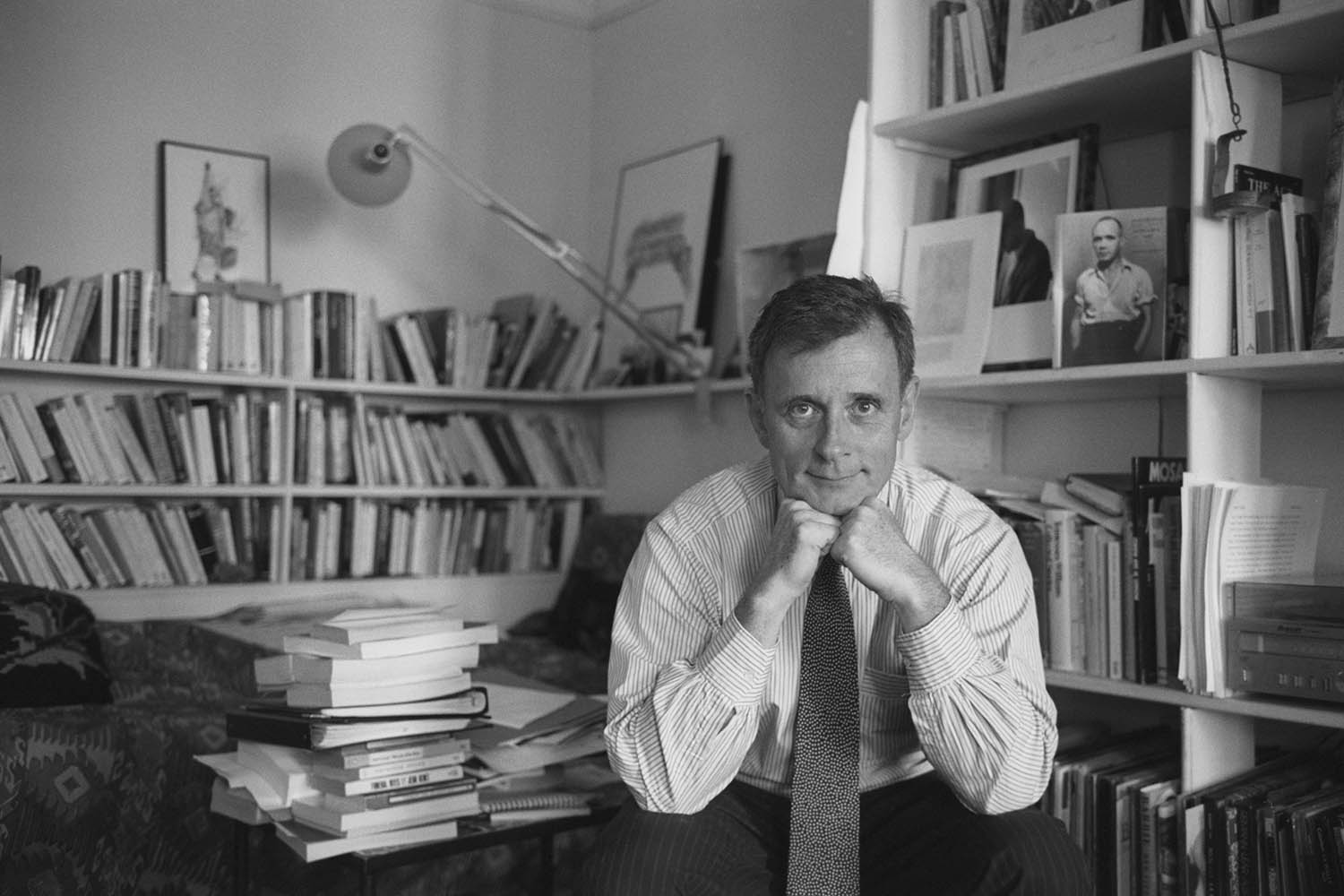Early in Edmund White’s career as a novelist he met Truman Capote at a party in New York, who gave him a warning. “You’ll probably write some good books,” the author said. “But remember: it’s a horrible life.”
Perhaps, but as a gay man in Manhattan during the sexy 70s before the advent of Aids, White found ways to make life tolerable. He once worked out that he’d had sex with 3,210 men between 1962 and 1982, though pointed out that was “only three a week”. His sexual appetite, surpassed as a priority only by his work ethic.
White’s promiscuity was the bedrock of his career as the godfather of gay American literature. His debut novel in 1973, Forgetting Elena, was described to his glee by Vladimir Nabokov, his hero, as “a marvellous book”, and he was a founding member of a gay writers’ circle in New York called The Violet Quill. In 1977, he co-authored The Joy of Gay Sex with his therapist Charles Silverstein. It was a comprehensive, witty and honest manual, giving advice on the etiquette of cottaging and how the hardest part of having an orgy is the organisation involved.
Greater success came in 1982 with A Boy’s Own Story, the first of a semi-autobiographical trilogy, followed by The Beautiful Room is Empty (1988) and The Farewell Symphony (1997) that charted growing up in the repressed 1950s, the liberated exuberance of the 60s and 70s and the misery and fear caused by the Aids epidemic in the 80s.
The title of the last book was taken from the nickname of Haydn’s Symphony No 45 in which the members of the orchestra stop playing one by one, snuff out their candles and leave. It was a metaphor for the decimation of gay New York. White was a founder of Gay Men’s Health Crisis, an organisation that gave advice and help.
He later described how the fun stopped. “A feeling of dread was now in every embrace,” he wrote. “What had seemed innocent revels now felt like the manoeuvres of a death squad. What had felt warm and sticky with life was now the cool syrup of mortality.” As New York was “turning into a morgue”, he fled to Paris in 1983, hoping to continue having “industrial quantities of sex”. Two years later, he became HIV positive.
‘White was the most gracious and witty of conversationalists whom Oscar Wilde would have much admired’
‘White was the most gracious and witty of conversationalists whom Oscar Wilde would have much admired’
Joyce Carol Oates
White spent 14 years in France and in 1993 published a biography of the novelist Jean Genet that won the Pulitzer Prize. By the time he returned to New York, four members of The Violet Quill and innumerable other old friends had died.
Edmund Valentine White was born in Ohio and grew up in Illinois after his parents divorced. He first had sex with a boy at summer camp at the age of 12 and two years later told his mother he was gay. She sent him to a psychiatrist who said he was “unsalvageable”. He was offered a place at Harvard but chose to study Chinese at the University of Michigan in order to be near his therapist, who told White that he could “cure” homosexuality. White was engaged to a woman twice before realising that his first shrink was right.
In 1962 he moved to New York and wrote for magazines. In 1969, he took part in the riot at the Stonewall bar in Greenwich Village – which came to be seen as a milestone in the movement for gay rights — though claimed it was “more Dada than Bastille”. Much of his life was told in graphic and unrestrained detail over five memoirs from 2005. The most recent, The Loves of my Life, was published in January. A review in The Times began: “There’s no foreplay… it’s trousers down from page one.” He supplemented his writing with teaching posts at Brown, Columbia and Princeton, complaining that because he always thought he would be dead within a year he had never saved for old age, but he was regarded as a kind and encouraging mentor.
Though he claimed to have been monogamous only once – “briefly, with a passionate Spaniard who was unrepentantly jealous and domineering. It was irritating, but very sexy” – he had a loving relationship for 30 years with his fellow writer Michael Carroll. They married in 2013; gay marriage had been legalised in New York two years earlier. Despite White’s doubts about the institution of marriage, it was the only way that Carroll could receive Princeton University’s spousal health benefits.
Newsletters
Choose the newsletters you want to receive
View more
For information about how The Observer protects your data, read our Privacy Policy
Joyce Carol Oates, the American author and a long-time friend, said White was “the most gracious and witty of conversationalists whom Oscar Wilde would have much admired”, while Bill Clegg, his agent, said his “depictions of gay life reshaped American literature”. He was greatly admired on this side of the Atlantic, too. The novelist Matt Cain called his works “fun and gossipy but never cruel” and said his candour about sex was “gloriously positive during a time when there wasn't just mass hatred of gay men but widespread hysteria”.
The writer Damian Barr said White was a genius who “danced between the sacred and profane, the embodied and the cerebral, fiction and memoir”, while the journalist Tim Teeman, who interviewed White often, said: “One could never have a dreary time around him. He was so erudite, mischievous, candid, charming and kind – well-versed in the arts of seduction, on the page and off.”
Edmund White, author, was born on 13 January, 1940, and died on 3 June, 2025, aged 85
Photo by Sophie Bassouls/Sygma/Getty

